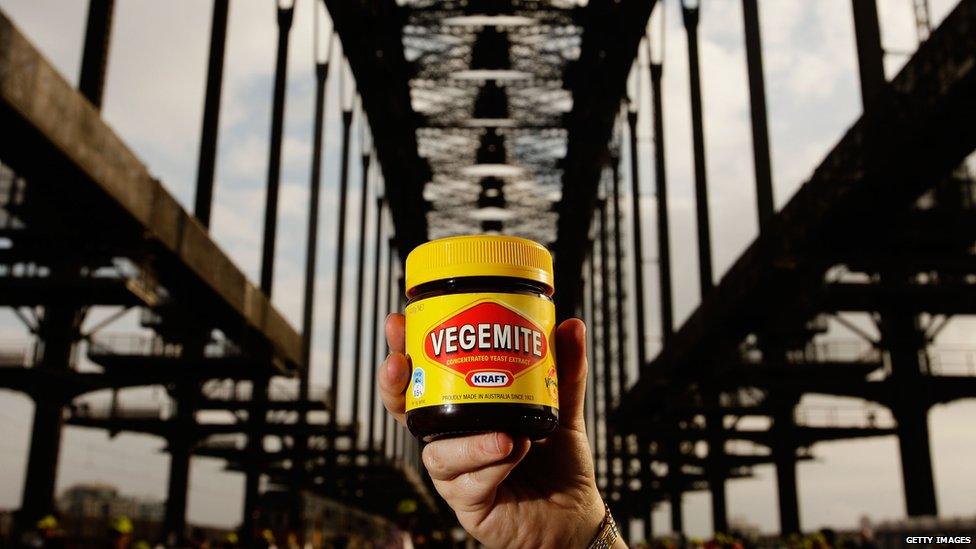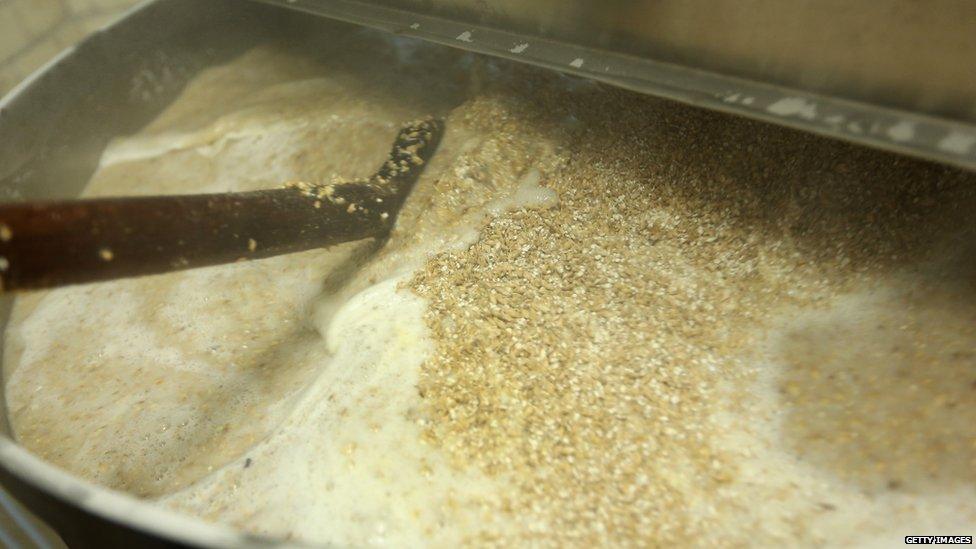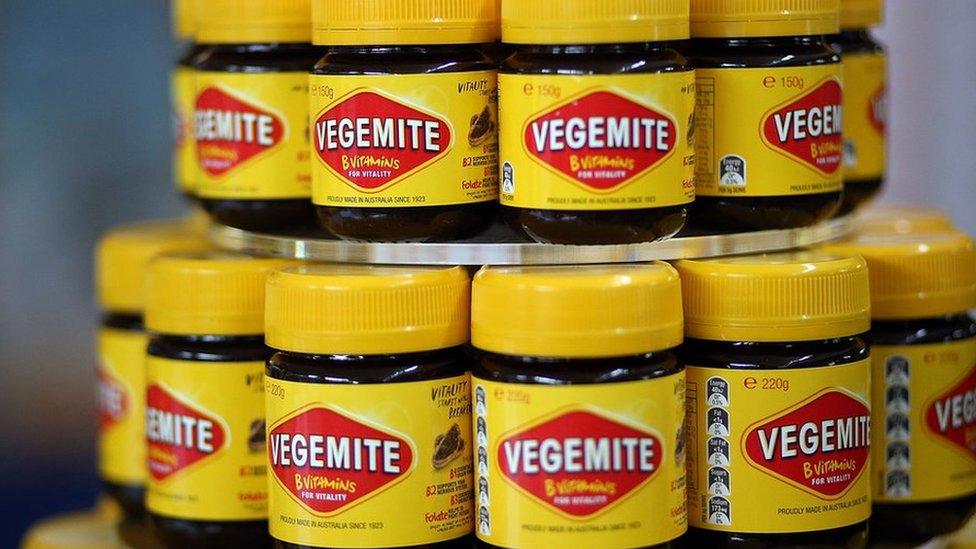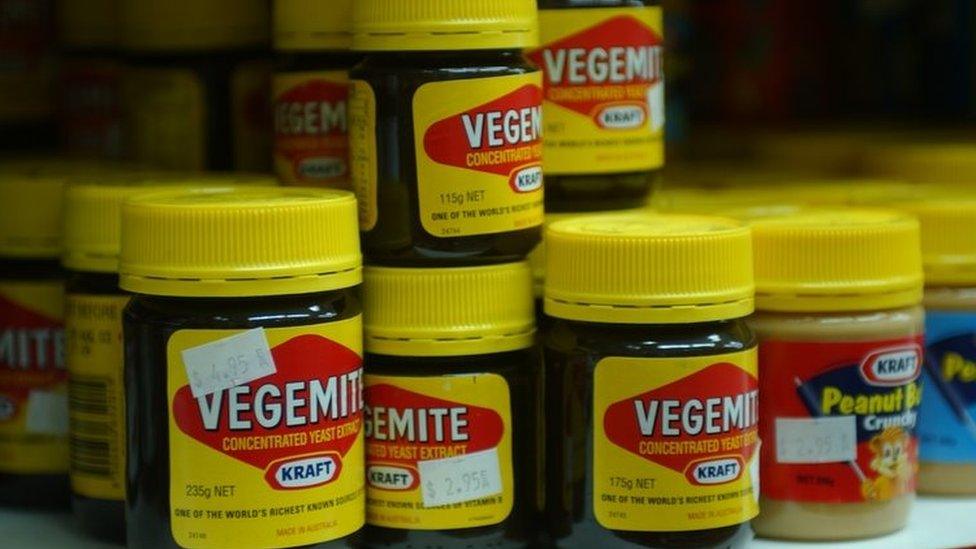The real story behind that Vegemite headline
- Published

Vegemite started as a war-time substitute for Marmite, and is an Australian culinary icon
When a Queensland newspaper reported that Vegemite was being used to brew alcohol in remote Indigenous communities, local and foreign media went into overdrive.
There were suggestions the salty spread was being distilled in bathtubs and children were drinking the brew.
Quotes by the Federal Indigenous Affairs Minister Nigel Scullion that sales of the humble paste should be limited in some remote communities were quickly re-reported, including by the BBC.
Prime Minister Tony Abbott soon stepped in, dismissing suggestions of any Vegemite bans, but he did not rebut the home-brew allegations.
The real story appears to be quite different.
Vegemite manufacturer Mondelez International dismisses the illicit brew angle.
"The autolysis process and subsequent yeast processing in the manufacture of Vegemite kills the yeast," Mondelez spokesperson, Sandra Dal Maso said in a statement.
"As sugar and active yeast are two elements required in the brewing process, Vegemite cannot be fermented into alcohol," Ms Dal Maso said.

Malted barley is a traditional ingredient in some forms of alcohol
Scientists agree, telling the BBC that other ingredients would have to be present.
Alcohol can be made from just about any food if there is a sugar source and the right type of yeast present, says molecular bioscience researcher at the University of Queensland, Dr Maggie Hardy.
So why did people think Vegemite was being used in remote Indigenous communities to brew moonshine?
Mr Scullion's office told the BBC the minister's quotes that Vegemite was a "precursor to misery" had been cherry-picked from a longer interview about the dangers of home-brewed alcohol.
He had visited Mornington Island, in Queensland's Gulf of Carpentaria, earlier in the year, where the home-brew problem was discussed, his office says.
'Red herring'
A community advocate on Mornington Island told the BBC that Vegemite was "definitely" being added to home-brews but said that the story was a "red herring".
Dr Berry Zondag, from Junkuri Laka Wellesley Islands Aboriginal Law, Justice and Governance Association, says alcohol management plans are pushing problem drinking underground within his unique, and isolated community.
Dr Zondag believes locals are getting around a government alcohol ban by brewing their own drinks.
His community is one of 19 in Queensland where the state government has imposed alcohol restrictions on the grounds of improving people's health.
He is calling for individual alcohol licences with strict behavioural conditions attached.
What would be banned next, he asks: "Fruit juice? Sugar? Even Water? There are much more profound, serious questions".
Dr Hardy agrees the issue is a wider one.
"If there are problem drinkers in a community, it's obviously not the fact that science allows you to ferment alcohol; it's being confounded by larger societal problems," she told the BBC.
- Published10 August 2015

- Published9 August 2015
